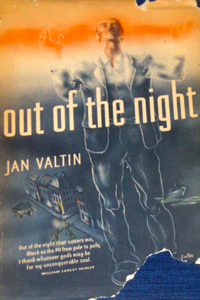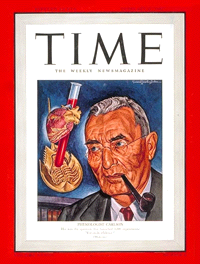- Articles
- Commonweal
- TIME – Reviews
- TIME – Articles
- TIME – Cover Stories
- TIME – Foreign News
- Life Magazine
- Harper’s: A Chain is as Strong as its Most Confused Link
- TIME – Religion
- New York Tribune
- TIME
- National Review
- Soviet Strategy in the Middle East
- The Coming Struggle for Outer Space
- The Left Understands the Left
- To Temporize Is Death
- Big Sister Is Watching You
- Springhead to Springhead
- Some Untimely Jottings
- RIP: Virginia Freedom
- A Reminder
- A Republican Looks At His Vote
- Some Westminster Notes
- Missiles, Brains and Mind
- The Hissiad: A Correction
- Foot in the Door
- Books
- Poetry
- Video
- About
- Disclaimer
- Case
- Articles on the Case
- Hiss Case Coverage: TIME 1948
- Hiss Case Coverage: TIME 1949
- Hiss Case Coverage: TIME 1950
- Hiss Case Coverage: TIME 1951
- Hiss Case Coverage: TIME 1952
- Trial by Typewriter
- I Was the Witness
- The Time News Quiz
- Another Witness
- Question of Security
- Fusilier
- Publican & Pharisee
- Recent & Readable
- Recent & Readable
- Kudos
- Letters – June 16, 1952
- Readable
- Letters – June 23, 1952
- Recent & Readable
- Recent & Readable
- Recent & Readable
- Nominee for Veep
- Recent and Readable
- Recent and Readable
- Democratic Nominee for President
- Recent & Readable
- Recent & Readable
- Fighting Quaker
- Recent & Readable
- Recent & Readable
- Recent & Readable
- Timely Saints
- Nixon on Communism
- People
- Who’s for Whom
- 1952 Bestsellers
- Letters – December 15, 1952
- Year in Books
- Man of Bretton Woods
- Hiss Case Coverage: TIME 1953
- Hiss Case Coverage: TIME 1954
- Hiss Case Coverage: TIME 1955
- Hiss Case Coverage: TIME 1956-1957
- Private
Books: Out of the Night
Monday, Jan. 20, 1941
Books: Collapse
OUT OF THE NIGHT — Jan Valtin — Alliance ($3.50).
 In the plain, unvarnished days of the Russian Revolution, the Chekists used to keep batteries of automobile engines constantly running to drown out the human and mechanical sounds from the execution cellars. As Russia sought to “catch up with and surpass capitalist technology,” less garish techniques were found for silencing the human voice. Few of the men and women who might tell how Communism really works ever escaped to tell. The handful who did 1 were defeated by a twofold irony: 1) they were suspect as Communists, doubly suspect as ex-Communists; 2) the things of which they tried to warn the world were so monstrous that few believed them.
In the plain, unvarnished days of the Russian Revolution, the Chekists used to keep batteries of automobile engines constantly running to drown out the human and mechanical sounds from the execution cellars. As Russia sought to “catch up with and surpass capitalist technology,” less garish techniques were found for silencing the human voice. Few of the men and women who might tell how Communism really works ever escaped to tell. The handful who did 1 were defeated by a twofold irony: 1) they were suspect as Communists, doubly suspect as ex-Communists; 2) the things of which they tried to warn the world were so monstrous that few believed them.
This week another deserter stepped out of the night and spoke his piece. He had no face and no identity. He called himself Jan Valtin. He claimed that he was: 1) an ex-German Communist; 2) an ex-international organizer of seamen and harbor workers; 3) an ex-agent of the Communist International; 4) an ex-co-worker of the OGPU; 5) an escaped prisoner of the Gestapo; 6) an escaped prisoner of the OGPU; 7) a man wanted dead or alive by both. What he had to tell seemed pretty well to substantiate his claims.
Unlike other Communist books of revelations, Out of the Night is remarkably well written. Its 841 pages are crowded with exact information, names and dates. More important, when the author does not know something, he says so. His book describes in great detail the immensely ramified activities of the “underground” Communist movement. It describes how strikes in Europe were fomented, and sometimes broken by the fomenter when they conflicted with Soviet policy. It describes the methods whereby a single experienced Communist sailor can disrupt a whole ship by sabotage. It describes how the 1923 Communist uprising in Germany (in which Valtin led a detachment) was organized, then called off by Moscow after fighting began.
Out of the Night is an autobiography, but through its pages slinks many a Communist bigwig. There is Bulgarian Comrade Georgi Dimitrov, now secretary of the Communist International, once hero of the Reichstag fire trial. Valtin reveals him as the flabby, dandified, over-perfumed head (for many years) of the Comintern’s West European underground section. There is sly, foxy Heinz Neumann, who plotted the 1927 uprising in Canton, China. Once Stalin‘s darling, he was shot in Stalin’s Purge. There is George Mink, ex-Philadelphia taxi driver, Communist organizer of New York’s water front, OGPU gunman now wanted by the U. S. Government. Valtin describes his uneasiness as he watched these men intriguing against, spying on, double-crossing and betraying each other.
In 1933, Valtin, having escaped from Nazi Germany, was ordered back by a Communist chief who did not like him. Valtin obeyed, was captured by the Nazis, tortured for 101 successive days in the Fuhlsbüttel concentration camp. The scenes in the concentration camp are some of the most sombre and terrifying yet described. By pretending to enter the Nazi service, Valtin was freed, sent to spy in the Soviet Union. The Nazis kept his wife and little son as hostages. She died in a concentration camp. The boy disappeared. Off rushed Valtin to the comrades in Copenhagen, found Stalin’s Purge going great guns. While he was plotting to get his family out of Germany, the OGPU put him under day-&-night guard in a cottage which served as an OGPU prison near Copenhagen. Valtin set fire to it, escaped. Immediately the OGPU denounced him as a Gestapo agent, began a man hunt. The Gestapo began to hunt him as an OGPU agent.
Part of this book’s peculiar power comes from its casual reporting of weird, harrowing, unfamiliar things. Part comes from Valtin’s objective reporting of his own activities, without sparing or justifying himself. But its real power comes from something else. Communism in its heyday was a materialist religion for which its believers were ready to die. Said Eugen Leviné quietly to the court-martial that sentenced him to be shot: “We Communists are all on furlough from death.” Valtin’s book is a clinical record of the moral disintegration of that religion. The ultimate horror in reading it is less its portrait of violence, of crimes, of vague or too real terrors, than the sense it gives of the soft, slow collapse of civilized men into total depravity.
Notes:
- Notably Professor Tchernavin (I Speak for the Silent); General Walter G. Krivitzky (In Stalin’s Secret Service); Victor Serge (Russia Twenty Years After). [Time footnote – Editor] ↩
Archives
Tags
Adolf Berle Alexander Ulanovsky Alger Hiss Arthur Koestler Atlas Shrugged Ayn Rand Benn Steil Cold Friday Cold War Communism Dwight Eisenhower FDR George W. Bush Ghosts on the Roof Harry Dexter White Harry Truman Hiss Case House Un-American Activities Committee HUAC Ignatz Reiss John Loomis Sherman John Maynard Keynes Joseph McCarthy Joseph Stalin Karl Marx Leon Trotsky Max Bedacht Middle East National Review Peter the Great Pumpkin Papers Ralph de Toledano Richard Nixon Ronald Reagan Sputnik TIME magazine Tony Judt Vladimir Lenin Walter Krivitsky Westminster Whittaker Chambers William F. Buckley William F. Buckley Jr. Winston Churchill YaltaArt Resources
- B&W Photos from Farm Security Administration-Office of War Information Collection
- Life of the People: Radical Impulse + Capital and Labor
- Art of Marxism
- Comrades in Art
- Graphic Witness
- Jacob Burck
- Hugo Gellert + Gellert Papers
- William Gropper
- Jan Matulka: Thomas McCormick Gallery + Global Modernist
- Esther Shemitz Chambers
- Armory Show 1913
Pages from old website
Official website of Whittaker Chambers ( >> more )
Spycraft
- China Reporting
- CIA
- CIA – Alger Hiss Case
- Cold War Files
- Cold War Studies (Harvard)
- Comintern Online
- Comintern Online – LOC
- CWIHP – Wilson Center
- David Moore – Critical Thinking and Intelligence Analysis
- DC Writers: WC Home
- Economist – Espionage
- Essays on Espionage
- FBI – Rogue DNS Checker
- House – Hearing 08/25/1948
- House – Hiss Subpoena
- InfoRapid: WC
- Max Bedacht
- New York Times – Espionage
- NSA – FOIA Request
- PBS NOVA – Secrets Lies and Atomic Spies
- Richard Sorge
- Secrecy News
- Sherman Kent – Collected Essays
- Spy Museum – SPY Blog
- Thomas Sakmyster – J Peters
- Top Secret America – Map
- UK National Archives
- Vassiliev Notebooks
- Venona Decrypts
- Washington Decoded
- Washington Post – Espionage
- Zee Maps
Libraries
- American Commissar by Sandor Voros
- American Mercury – John Land
- American Writers Museum
- Archive.org – HUAC
- Archive.org – Lazar home
- Archive.org – Lazar Report
- Archives.org: 1948 – Hearings
- Archives.org: 1950 – Sherman Lieber
- Archives.org: 1951 – Sorge
- Archives.org: Ernie Lazar FOIA
- Archives.org: Ernie Lazar FOIA Collection
- Bio – Bennet Cerf
- Bio – Zara Witkin
- Bloomsburg University: Counterattack
- Bloomsburg University: Radical Publications
- Brooklyn Eagle 1948
- Centre des Archives communistes en Belgique
- CIA FOIA WC
- Daily Worker (various)
- Daily Worker: Marxists.org
- DC – Kudos
- DC – ORCID
- DC – ResearcherID
- DC – ResearchGate
- DC – SCOPUS
- Digital Public Library of America
- Erwin Marquit – Memoir
- FBI
- FBI Vault – WC
- Google: Books – WC
- GPO – WC
- GW – ER Papers: WC
- GWU: Eleanor Roosevelt WC
- Harvard College Writing Center – WC Summary
- Hathi: WC
- IISH: Marx Engels Papers
- ILGWU archives
- Images AP
- Images Corbis
- Images Getty Time Life
- Images LOC
- INKOMKA Comintern Archives
- International Newsletter of Communist Studies (Germany)
- JJC/CUNY – HC
- Labor Archives in the United States and Canada
- Life – WC
- LOC LCCN WC
- NBC Learn K-12: Spy Trials
- New Masses (Archive.org) 1926–1933
- New Masses (Marxists.org) 1926–1933
- New Masses (USussex) 1926–1938
- NSA: FOIA requests
- Ollie Atkins Photos
- Open Library: WC
- People: WC
- Poetry: Defeat in the Village
- PSA Communism
- SLU Law: HCase
- SSRN: Berresford – Hiss Case
- SUFL: Collections
- Tamiment: Collections
- Truman Library – John S. Service
- Truman Library – Oral Histories
- Truman Library – WC
- UCBerk * eBooks
- UCBerk: China – Edgar Snow
- UCBerk: China – Grace Service
- UCBerk: China – Kataoka
- UCBerk: China – Mackinnon
- UCBerk: China – Owen Lattimore
- UCBerk: China – Stross
- UCBerk: France – Revolution
- UCBerk: Russia – Bread 1914-1921
- UCBerk: Russia – Comintern
- UCBerk: US – Conservatism WC
- UCBerk: US – Hollywood Weimar
- UCBerk: US – James Joyce
- UCBerk: US – Lawyers
- UCBerk: US – NY Intellectual
- UCBerk: US – Waterfronts
- UCLA Library Film & TV Archive
- UK National Archives: WC
- UMich: Salant Deception
- UPenn: US – Left Ephemera Collection
- UPitt: US – Harry Gannes
- USDOE
- USDoED
- USDOJ
- USDOS
- Wall St + Bolshevik Revolution – Anthony Sutton
- Wikipedia A-D
- WikiSearch WC
- WordPress themes – Anders Noren
- x FSearch – WC


